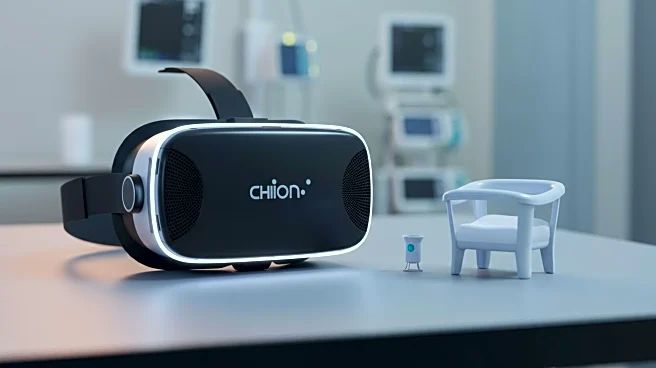What's Happening?
A pilot study conducted in Vietnam has demonstrated the feasibility of using virtual reality (VR) for neonatal resuscitation training. Participants reported high satisfaction with the immersive VR experience, which allowed them to practice critical interventions in a simulated environment. The study highlighted the adaptability of VR training across diverse healthcare settings, despite challenges such as internet connectivity and language barriers. The VR platform provided a team-based training approach, enhancing realism and promoting collaborative decision-making.
Why It's Important?
The use of VR in medical training offers a novel approach to education, providing healthcare professionals with realistic simulations that can improve skill acquisition and team dynamics. This technology can be particularly beneficial in resource-constrained settings, where access to traditional training tools may be limited. By enabling repeated exposure to high-stakes scenarios, VR training can enhance preparedness and confidence among healthcare providers, potentially leading to better patient outcomes. The study underscores the potential of VR to transform medical education and training practices.
What's Next?
Future iterations of the VR training program may incorporate bilingual instruction and region-specific guidelines to improve accessibility and relevance. Enhancements in technical infrastructure and scenario variability could further optimize the effectiveness of VR-based training. As VR technology continues to advance, it may become a standard component of medical education, offering scalable and effective training solutions for healthcare professionals worldwide.












